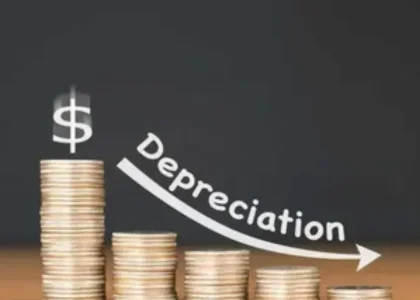Understand Your Current Credit Situation
This heading emphasizes the importance of having a clear understanding of where you currently stand in terms of your credit. It involves several key actions:
Check Your Credit Report: Obtain a copy of your credit report from major credit bureaus (Equifax, Experian, TransUnion) to review your credit history, accounts, balances, and payment history.
Review Your Credit Score: Understand what your current credit score is and how it compares to average scores. This gives you a baseline to track your progress as you work to improve it.
Identify Negative Items: Look for any negative marks on your credit report such as late payments, accounts in collections, or errors that may be dragging down your score.
Assess Credit Utilization: Understand how much of your available credit you’re using. High credit utilization (using a large portion of your available credit limits) can negatively impact your score.
Evaluate Credit Accounts: Take stock of all your credit accounts, including credit cards, loans, and mortgages. Note their balances, interest rates, and payment terms.
By thoroughly understanding your current credit situation through these steps, you can better strategize and prioritize actions to improve your credit score effectively. This knowledge empowers you to make informed decisions and take appropriate steps towards financial health and improved creditworthiness.
Check Your Credit Report Regularly

This heading underscores the importance of regularly monitoring your credit report to maintain financial awareness and ensure accuracy. Here’s why it’s crucial and what it entails:
Monitor for Accuracy: Regularly checking your credit report allows you to verify the accuracy of the information listed. Errors, such as incorrect account details or fraudulent activities, can negatively impact your credit score and should be corrected promptly.
Detect Identity Theft: Checking your credit report helps you spot unauthorized accounts or activities that may indicate identity theft. Early detection allows you to take swift action to mitigate potential damage to your credit profile.
Understand Credit Utilization: By reviewing your credit report, you can assess how much of your available credit you are utilizing. High utilization can adversely affect your credit score, so monitoring helps you adjust your spending habits if necessary.
Track Progress: Regularly checking your credit report allows you to track your credit score’s progress over time. This is particularly important if you are actively working to improve your creditworthiness through responsible financial practices.
Plan for Major Financial Decisions: Before applying for a loan or mortgage, checking your credit report allows you to ensure that your credit profile accurately reflects your financial health. This can potentially help you secure better terms and interest rates.
Take Corrective Actions Promptly: If you identify any discrepancies or negative items on your credit report, such as late payments or collections, you can take corrective actions promptly. This might involve disputing errors or negotiating payment arrangements with creditors.
In summary, regularly checking your credit report is a proactive measure that helps you stay informed about your financial standing, detect potential issues early, and take steps to maintain or improve your credit score effectively. It is a fundamental practice for financial responsibility and long-term financial health.
Make Payments on Time
This heading emphasizes the critical importance of paying your bills and debts on time to maintain and improve your credit score. Here’s why this practice is essential and what it entails:
Impact on Credit Score: Payment history is one of the most significant factors influencing your credit score. Consistently making on-time payments demonstrates responsible financial behavior and positively impacts your creditworthiness.
Avoid Late Fees: Making payments by their due dates helps you avoid late fees and penalties imposed by creditors. These fees can add up and strain your finances if you consistently miss payment deadlines.
Prevent Negative Marks: Late payments can result in negative marks on your credit report, such as late payment entries. These can lower your credit score and remain on your report for several years, impacting your ability to obtain favorable loan terms or credit approvals.
Maintain Relationships with Creditors: Timely payments contribute to building positive relationships with lenders and creditors. This can potentially lead to improved terms on future loans or credit extensions.
Automate Payments: Consider setting up automatic payments for bills and debts to ensure payments are made on time each month. This reduces the risk of forgetting to pay and helps maintain a consistent payment history.
Budgeting and Planning: Plan your finances effectively to ensure you have sufficient funds to cover your obligations each month. This may involve creating a budget, tracking expenses, and prioritizing payments to meet due dates.
Communication with Creditors: If you anticipate difficulty making a payment on time, communicate with your creditors promptly. They may offer alternative payment arrangements or hardship programs that can help you avoid negative consequences.
By making payments on time consistently, you not only protect your credit score but also build a solid financial foundation based on responsible money management practices. This habit is key to achieving and maintaining good credit health over the long term.
Reduce Credit Card Balances

This heading emphasizes the importance of lowering the outstanding balances on your credit cards. Here’s why this practice is crucial and what it entails:
Improve Credit Utilization Ratio: Credit utilization ratio is a significant factor in determining your credit score. It’s calculated by dividing your total credit card balances by your total credit limits. Reducing your credit card balances helps lower this ratio, which can positively impact your credit score.
Avoid Maxing Out Credit Limits: Maxing out or carrying high balances on your credit cards can negatively impact your credit score. Lenders may view it as a sign of financial strain or higher risk, potentially lowering your creditworthiness.
Pay Down High-Interest Debt: Credit cards often have higher interest rates compared to other types of debt. By reducing credit card balances, you can save money on interest payments over time, freeing up funds for savings or other financial goals.
Strategize Debt Repayment: Develop a plan to pay off credit card balances strategically. Consider focusing on high-interest cards first (debt avalanche method) or paying off smaller balances to gain momentum (debt snowball method).
Budgeting and Spending Control: Lowering credit card balances requires disciplined budgeting and spending control. Evaluate your expenses, prioritize debt repayment, and avoid unnecessary purchases to allocate more funds towards paying down balances.
Credit Score Improvement: As you reduce credit card balances and improve your credit utilization ratio, you may see an increase in your credit score over time. This can open doors to better loan terms, lower interest rates, and improved financial opportunities.
Avoiding Late Payments: Lower credit card balances also reduce the risk of missing payments or carrying balances over from month to month, which can lead to accumulating interest charges and potential late fees.
By actively working to reduce credit card balances, you not only improve your credit score but also strengthen your overall financial health. It’s a proactive step towards achieving financial stability and flexibility in managing your personal finances.
Avoid Opening Too Many New Accounts
This heading stresses the importance of managing the number of new credit accounts you open within a certain period. Here’s why this practice is essential and what it entails:
Impact on Credit Score: Opening multiple new accounts in a short period can lower your average account age and may negatively impact your credit score. Credit scoring models consider factors such as the age of your accounts and the frequency of new credit applications.
Credit Inquiries: Each time you apply for a new credit account, a hard inquiry is recorded on your credit report. Too many inquiries within a short period can signal to lenders that you may be taking on too much debt or facing financial difficulties, potentially lowering your credit score.
Managing Debt Responsibly: Opening new accounts can increase your overall available credit, which may tempt you to accumulate more debt than you can comfortably manage. This can lead to higher credit card balances and potentially lower your credit score if utilization rates increase.
Consider Long-Term Impact: Before opening new accounts, consider the long-term impact on your credit profile. Aim to build a diverse credit history over time rather than opening several accounts at once.
Strategic Use of Credit: Focus on using existing credit accounts responsibly rather than seeking new credit unnecessarily. This includes making timely payments, keeping balances low relative to credit limits, and demonstrating responsible credit management habits.
Review Credit Offers Carefully: Evaluate credit offers carefully before applying. Consider factors such as interest rates, fees, and rewards to determine if opening a new account aligns with your financial goals and needs.
Plan for Major Financial Goals: If you anticipate needing credit for a major purchase or investment in the near future, plan strategically to minimize the impact on your credit score. Avoid opening new accounts shortly before applying for significant loans, such as a mortgage or car loan.
By avoiding the temptation to open too many new accounts, you can maintain a stable and healthy credit profile. This approach helps preserve your credit score and enhances your ability to qualify for favorable terms when seeking credit in the future.
Keep Old Accounts Open

This heading emphasizes the importance of maintaining older credit accounts rather than closing them. Here’s why this practice is beneficial and what it entails:
Length of Credit History: The age of your credit accounts is a crucial factor in determining your credit score. Older accounts with a positive payment history can positively impact your credit score by demonstrating a long-standing record of responsible credit management.
Credit Utilization Ratio: Closing old accounts can reduce your total available credit, which may increase your credit utilization ratio (the amount of credit you’re using compared to your total credit limit). A higher utilization ratio can negatively affect your credit score.
Diverse Credit Mix: Lenders and credit scoring models often favor a diverse credit history that includes different types of accounts (e.g., credit cards, loans, mortgages). Keeping older accounts open contributes to a diverse credit mix and can improve your creditworthiness.
Maintaining Credit History: Closing old accounts shortens your credit history, potentially lowering the average age of your accounts. This can have a negative impact on your credit score, especially if you don’t have many other accounts with a long history.
Avoiding Inactivity Fees: Some credit card issuers may charge fees for inactive accounts. Keeping old accounts open and occasionally using them for small purchases can help you avoid these fees.
Strategic Account Management: Instead of closing old accounts, consider using them responsibly to maintain their positive impact on your credit score. Make occasional purchases and pay off the balance in full each month to demonstrate active credit management.
Reviewing Accounts Regularly: Periodically review all your credit accounts to ensure they remain active and in good standing. Report any inaccuracies or fraudulent activities promptly to protect your credit profile.
By keeping old accounts open and managing them responsibly, you can strengthen your credit history, maintain a healthy credit utilization ratio, and improve your overall creditworthiness over time. This strategy demonstrates financial stability and responsible credit management practices to potential lenders.
Diversify Your Credit Mix
This heading emphasizes the importance of having a variety of credit accounts and types in your credit history. Here’s why this practice is beneficial and what it entails:
Impact on Credit Score: Credit scoring models consider the diversity of your credit mix as a factor in determining your credit score. Having a mix of credit types, such as credit cards, installment loans (like auto loans or personal loans), and mortgage loans, demonstrates your ability to manage different types of credit responsibly.
Demonstrate Responsibility: Managing various types of credit accounts shows lenders that you can handle different financial obligations effectively. This can positively influence your creditworthiness and improve your chances of obtaining favorable loan terms in the future.
Long-Term Planning: Building a diversified credit mix over time can contribute to a strong credit profile. It shows that you’re capable of managing both revolving credit (like credit cards) and installment credit (like loans) responsibly.
Credit Utilization: Including different types of credit in your mix can also help in managing your credit utilization ratio. For example, installment loans have fixed payments over a set period, while credit cards offer revolving credit with varying balances. Balancing these types can optimize your overall credit utilization.
Strategic Use of Credit: When applying for new credit, consider how it will affect your credit mix. Aim to diversify your credit portfolio gradually and strategically, avoiding opening multiple new accounts of the same type within a short period.
Maintain Stability: Maintaining a stable credit mix over time demonstrates consistency in managing various financial responsibilities. Avoiding frequent changes or closures of accounts can help preserve the positive impact of a diversified credit history.
Review Regularly: Periodically review your credit report to ensure that your credit mix remains balanced and reflects your financial goals. Address any discrepancies or issues promptly to maintain a healthy credit profile.
By diversifying your credit mix, you can enhance your creditworthiness and improve your credit score over time. This proactive approach to managing different types of credit responsibly can benefit your financial health and future borrowing opportunities.
Set Up Payment Reminders

This heading emphasizes the importance of establishing systems to remind yourself of upcoming payment deadlines for bills and debts. Here’s why this practice is beneficial and what it entails:
Avoid Late Payments: Payment reminders help ensure that you never miss a payment deadline. Timely payments are crucial for maintaining a positive credit history and avoiding late fees or penalties imposed by creditors.
Maintain Credit Score: Consistently making payments on time is one of the most significant factors in determining your credit score. Setting up reminders helps you stay organized and proactive in managing your financial obligations.
Various Reminder Methods: You can set up payment reminders through various methods:
Calendar Alerts: Use digital calendars (like Google Calendar or Outlook) to set up recurring reminders for bill due dates.
Mobile Apps: Many banking apps and financial management apps offer reminders for upcoming payments.
Email or Text Alerts: Some creditors and financial institutions allow you to receive email or text notifications for due dates and upcoming payments.
Automatic Payments: Consider setting up automatic payments for bills and debts whenever possible, ensuring payments are made on time without needing manual intervention.
Customization: Customize reminders based on your preferred method and frequency. For example, set reminders a few days before the due date to allow time for processing.
Budgeting and Planning: Payment reminders also support effective budgeting and financial planning. They help you allocate funds for upcoming payments and prioritize expenses accordingly.
Consistency: Establishing a routine of setting up payment reminders reinforces responsible financial habits. It promotes a proactive approach to managing your finances and avoiding the stress and consequences of missed payments.
Monitor Financial Health: Regularly reviewing payment reminders allows you to monitor your financial health and adjust your budget or spending habits as needed.
By setting up payment reminders, you can streamline your financial management process, maintain a positive credit history, and ultimately improve your overall financial well-being. This proactive approach contributes to financial stability and responsible money management practices.
Negotiate with Creditors
This heading emphasizes the proactive approach of engaging with creditors to discuss and potentially modify the terms of your existing debt obligations. Here’s why this practice is beneficial and what it entails:
Debt Repayment Options: Contacting creditors allows you to explore various options for repaying your debt, such as restructuring payment schedules, reducing interest rates, or negotiating settlements for less than the full amount owed.
Financial Hardship: If you are experiencing financial hardship, negotiating with creditors can help you temporarily lower monthly payments, defer payments, or arrange a forbearance period until your financial situation improves.
Avoiding Default: By proactively negotiating with creditors, you can avoid defaulting on loans or credit obligations. Defaulting can severely damage your credit score and lead to additional fees, penalties, or legal action by creditors.
Building Positive Relationships: Establishing open communication and negotiating in good faith can help build a positive relationship with creditors. This can be beneficial if you need assistance in the future or are seeking to renegotiate terms on other accounts.
Credit Impact: Depending on the negotiated terms, reaching an agreement with creditors may have a positive impact on your credit score by helping you maintain consistent payments or reduce outstanding debt balances.
Preparing for Negotiations: Before contacting creditors, gather relevant information such as account details, income documentation, and a proposed repayment plan. Be prepared to explain your financial situation and demonstrate your commitment to resolving the debt responsibly.
Professional Assistance: If negotiating directly with creditors seems overwhelming or if you encounter difficulties, consider seeking assistance from credit counseling agencies or financial advisors who specialize in debt management and negotiation.
Document Agreements: Once you reach an agreement with creditors, ensure that all terms are documented in writing. Review the terms carefully to confirm accuracy and avoid misunderstandings in the future.
By negotiating with creditors, you demonstrate proactive financial management, seek viable solutions for debt repayment, and potentially improve your overall financial situation. This approach can help alleviate financial stress and set a path toward achieving financial stability and debt-free goals.
Be Patient and Persistent

This heading emphasizes the importance of maintaining resilience and consistency in your efforts to improve your credit score and overall financial health. Here’s why this practice is beneficial and what it entails:
Credit Score Improvement Takes Time: Improving your credit score is typically a gradual process. It requires consistent adherence to good financial habits, such as making payments on time, reducing debt balances, and managing credit responsibly.
Persistence in Financial Goals: Set realistic financial goals and stick to them over the long term. This includes budgeting effectively, paying down debt, and monitoring your credit report regularly for progress.
Overcoming Setbacks: Financial setbacks, such as unexpected expenses or temporary income reductions, may occur. Being patient and persistent allows you to navigate these challenges and continue working towards your financial goals without getting discouraged.
Educational Opportunities: Take the time to educate yourself about personal finance, credit management, and strategies for improving your credit score. This knowledge empowers you to make informed decisions and adjust your approach as needed.
Building Positive Habits: Developing and maintaining positive financial habits requires patience and persistence. Consistently practicing responsible credit management behaviors, such as keeping balances low and avoiding unnecessary debt, contributes to long-term financial stability.
Seeking Guidance When Needed: If you encounter challenges or have questions about improving your credit score, don’t hesitate to seek guidance from financial advisors, credit counselors, or reputable resources. They can provide personalized advice and strategies to help you achieve your financial goals.
Celebrating Milestones: Recognize and celebrate your progress along the way. Whether it’s reaching a milestone in reducing debt or achieving a higher credit score, acknowledging your achievements can motivate you to continue your efforts.
Monitoring and Adjusting: Regularly monitor your credit score and financial status. Adjust your strategies as needed based on changes in your financial situation or credit profile. Persistence in monitoring and making adjustments can lead to sustained improvements over time.
By being patient and persistent in your efforts to improve your credit score and financial health, you cultivate resilience, build positive financial habits, and work towards achieving your long-term financial goals effectively.
Click here for more visited Posts!





